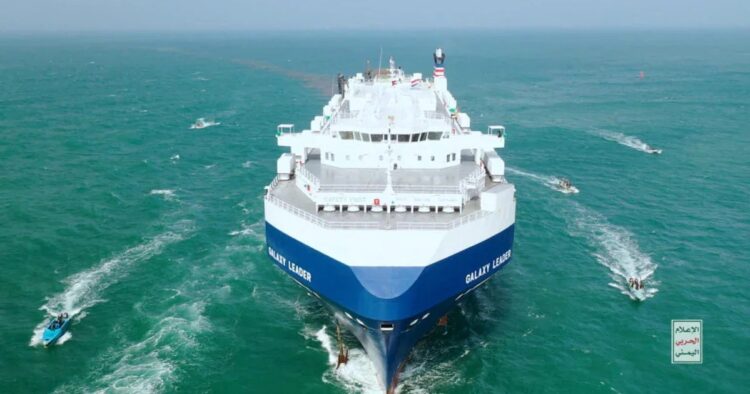Yemen’s Houthi rebels’ recent attacks in the Red Sea have prompted shipping companies to steer clear of the Suez Canal, a crucial revenue source for Egypt amid its economic struggles. Data from the International Monetary Fund (IMF) reveals a 35% decline in cargo transit through the canal in the first week of 2024 compared to the same period last year.
While the financial impact is currently manageable, analysts warn of potential challenges if Huthi attacks persist, affecting traffic through the vital maritime route linking Europe and Asia.
The Suez Canal, operational since 1869, plays a pivotal role for Egypt, generating $9.4 billion in transit fees during the fiscal year 2022/23. However, in response to Israel’s actions in Gaza, Huthi attacks have led companies to opt for the longer route around Africa’s Cape of Good Hope, resulting in a substantial increase in cargo traffic, up by 67.5%.
Danish shipping giant Maersk has announced the diversion of all vessels away from the Red Sea for the foreseeable future, citing the volatile situation that has raised insurance costs. Since November 18, 25 commercial vessels have been attacked in the southern Red Sea and Gulf of Aden, according to the US military.
The Houthis, aligned with Iran’s “axis of resistance” against Israel, claim their attacks are in solidarity with Palestinians. The Red Sea, from the Bab al-Mandeb Strait to Egypt’s Suez Canal, facilitates 12% of world trade, making it a vital shipping lane.
Despite the US launching a naval coalition to patrol the Red Sea, shipping companies are choosing the longer route, considering it economically viable despite additional fuel costs. The Soufan Center think tank notes that though freight rates have tripled, they remain lower than during the Covid-19 pandemic.
Egypt, grappling with economic challenges such as a 50% devaluation of its currency since March 2022 and over 35% inflation, heavily relies on Suez Canal revenues. With tourism and remittances also facing declines, the canal income plays a crucial role in funding both military and social welfare spending.
At least two-thirds of Egypt’s population lives on or below the poverty line, making Suez Canal revenues essential in managing social pressures. According to experts, the recent decline in shipping traffic may lead to a significant shortfall, posing concerns if the situation persists for an extended period.

















Comments